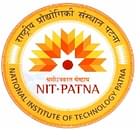Understanding
Asian Studies
Asian Studies is an interdisciplinary field
encompassing the study of the cultures, languages, histories, and societies of
Asia. This field covers a broad geographical area including East Asia,
Southeast Asia, South Asia, and Central Asia. Scholars in Asian Studies examine
a wide array of topics such as literature, politics, religion, economics, art,
and gender studies, often employing methodologies from various disciplines
including history, sociology, anthropology, and political science.
Why Pursue
a Ph.D. in Asian Studies?
A Ph.D. in Asian Studies is ideal for
individuals passionate about understanding the complexities and contributions
of Asian societies. This advanced degree enables scholars to contribute
original research, engage in critical debates, and develop a deep expertise in
specific areas of interest within Asian Studies. Additionally, the
interdisciplinary nature of the field allows for a holistic approach to
research, fostering a comprehensive understanding of Asia's role in global
contexts.
Admission
Process for Ph.D. in Asian Studies
1. Research and Selection: Begin by researching universities that offer a Ph.D. in Asian Studies.
Look for institutions with strong faculty, resources, and research centers
related to your area of interest. Consider reaching out to potential
supervisors whose research aligns with your interests.
2. Application Preparation:
- Statement of Purpose: Craft
a compelling statement of purpose outlining your research interests,
academic background, and reasons for pursuing a Ph.D. in Asian Studies.
- Research Proposal:
Develop a detailed research proposal highlighting your intended research
area, key questions, methodology, and potential contributions to the
field.
- Letters of Recommendation:
Obtain strong letters of recommendation from academic mentors or
professionals who can attest to your research potential and academic
capabilities.
- Academic Transcripts:
Ensure that you have all necessary academic transcripts demonstrating your
previous qualifications.
3. Standardized Tests: Some programs may require standardized test scores such as the GRE.
Check the specific requirements of each institution.
4. Application Submission: Complete the online application form for each university, submit the
required documents, and pay the application fees.
5. Interview: If shortlisted, you may be invited for an interview. Prepare to discuss
your research interests, academic background, and how you plan to contribute to
the program.
Eligibility
Criteria
Eligibility Ph.D. in Asian Studies typically include:
- A master’s degree in Asian Studies or a related field (such as
History, Political Science, Sociology, or Anthropology).
- A strong academic record demonstrating proficiency in relevant
subjects.
- Proficiency in one or more Asian languages may be required,
depending on the research focus.
- Prior research experience or publications in the field can be an
added advantage.
Potential
Research Areas
The scope in Asian Studies is vast and
diverse. Potential research areas include:
- Historical Studies:
Investigating the historical events, movements, and figures that have
shaped Asian societies.
- Cultural Studies:
Examining the cultural practices, traditions, and artistic expressions of
different Asian communities.
- Political and Economic Analysis:
Analyzing contemporary political dynamics, economic developments, and
international relations in Asia.
- Literature and Language:
Studying classical and modern literary works, linguistic developments, and
language policies in Asian countries.
- Religious and Philosophical Traditions: Exploring the diverse religious beliefs, practices, and
philosophical thought in Asia.
- Gender and Society:
Investigating gender roles, identities, and issues related to women and
LGBTQ+ communities in Asia.
- Migration and Diaspora Studies:
Understanding the experiences and contributions of Asian diasporic
communities globally.












